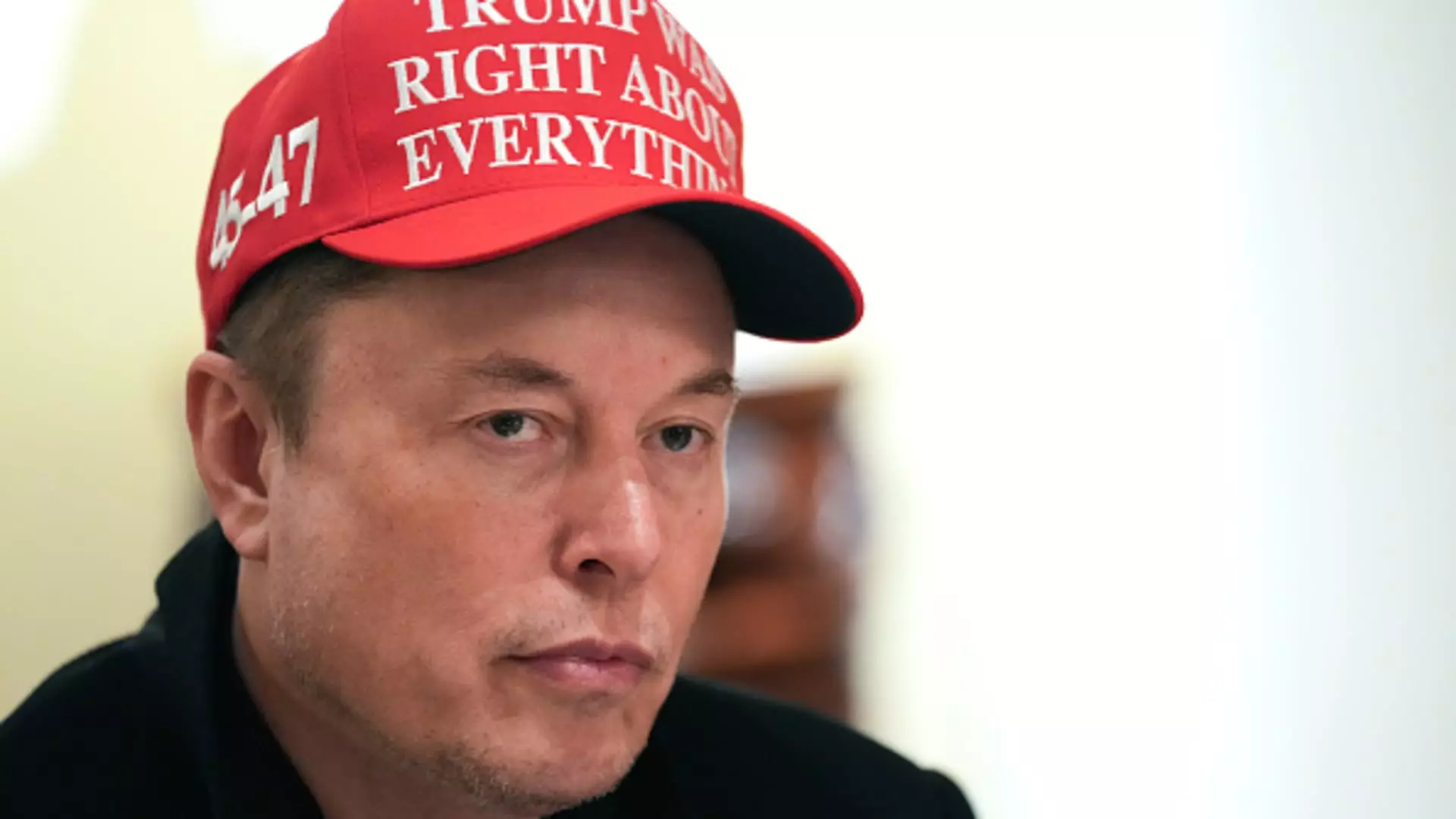Tesla’s recent financial turbulence has sent alarms ringing across the investment community. The electric vehicle giant saw its shares plummet nearly 6% on a day that preceded the much-anticipated first-quarter earnings report. At $227.50, the stock is teetering just above yearly lows, representing a staggering 44% loss for 2023. What stands out is this marked decline has occurred amidst concerns regarding “ongoing brand erosion,” which is becoming increasingly palpable. In just three months, shares have endured their worst quarter since 2022, and key stakeholders are rightly apprehensive about the company’s prospects.
What’s more alarming is the frequency of Tesla’s share drops; this latest dip marks the 12th time this year that the stock has slid more than 5% in a single session. Common sense dictates that something more profound is at play than mere market fluctuations. Analysts are increasingly connecting the dots between Tesla’s performance and CEO Elon Musk’s distractions stemming from his political engagements, particularly his controversial role within the recent Trump administration.
Distracted Leadership
Musk has long been celebrated as an innovator, yet his involvement in politics raises critical questions about his leadership priorities. While Tesla struggles with delays in its much-hyped robotaxi and self-driving technology, Musk seems embroiled in launching initiatives that threaten to reshape the federal landscape. Some of these initiatives include slashing federal jobs and rolling back government capacity, signaling a concerning detachment from the core business concerns of Tesla.
In an earnings call forum, investor inquiries about Musk’s political ramifications were numerous, with more than 160 questions directed at him alone. One pointed inquiry asked what measures the board was taking to salvage the brand from damage attributable to Musk’s political activity. Such queries are telling: investors are no longer merely interested in quarterly profits; they are looking for assurance that Tesla’s reputation and market viability are not being compromised by the whims of a distracted CEO.
Consumer Sentiment in Freefall
The shift in consumer sentiment is both striking and sobering. A recent survey revealed that only 27% of respondents would consider purchasing a Tesla, a sharp drop from 46% just a year prior. It is no longer just about competing with other electric vehicles; it’s becoming a matter of public perception and loyalty. The widespread notion that Tesla has transformed into a political symbol, inextricably linked to the Trump administration, is a narrative that many consumers are increasingly rejecting.
Tesla’s troubles are exacerbated by the company’s declining vehicle deliveries, which saw a 13% drop when comparing annual figures. Analysts predict the upcoming earnings report will reflect a slight revenue decline to $21.24 billion, along with disappointing earnings per share of only 40 cents. Clearly, investors’ hopes for a turnaround vision from Musk are riding high, but the political baggage is weighing him down heavily, perhaps permanently altering consumer choice.
Tariffs and International Challenges
Compounding these issues is the looming uncertainty surrounding Trump’s tariffs, which some analysts warn could create a significant impact on revenue and profit margins. Tensions in China are particularly acute, with domestic competition intensifying and consumer preferences shifting toward homegrown brands. If Tesla finds itself unable to sell cars domestically, the pressure to export could result in price reductions that further erode profit margins.
As the market stands, Oppenheimer analysts have issued a grim assessment, indicating that potential demand weakness in China coupled with a nationalistic consumer sentiment may drive buyers away from Tesla. They warned about a significant risk of “downward pressure on pricing” as Tesla can’t afford to sit idly while its competitors capitalize on the vacuum created by Musk’s political affiliations.
The Call for Focus
In the face of such overwhelming challenges, industry experts emphasize the need for a more focused Elon Musk. While there are murmurs that a more disciplined approach could yield positive outcomes, such optimism feels increasingly fragile. Institutions like Barclays have slashed Tesla’s price target from $325 to $275, framing it as a reflection of “weak fundamentals.” Their sentiment captures the general disillusionment far better than mere numbers — it’s a call for action, not just talk.
Investors and stakeholders alike are waiting for that turn of the proverbial tide during the next earnings call; they want assurance that Tesla can reclaim its status as an industry leader. Yet, the window of opportunity is narrowing, and with each passing day, the stakes grow higher. Elon Musk must prioritize the company over personalities and politics if he hopes to mend the fractures in his electric vehicle empire and restore investor confidence.

